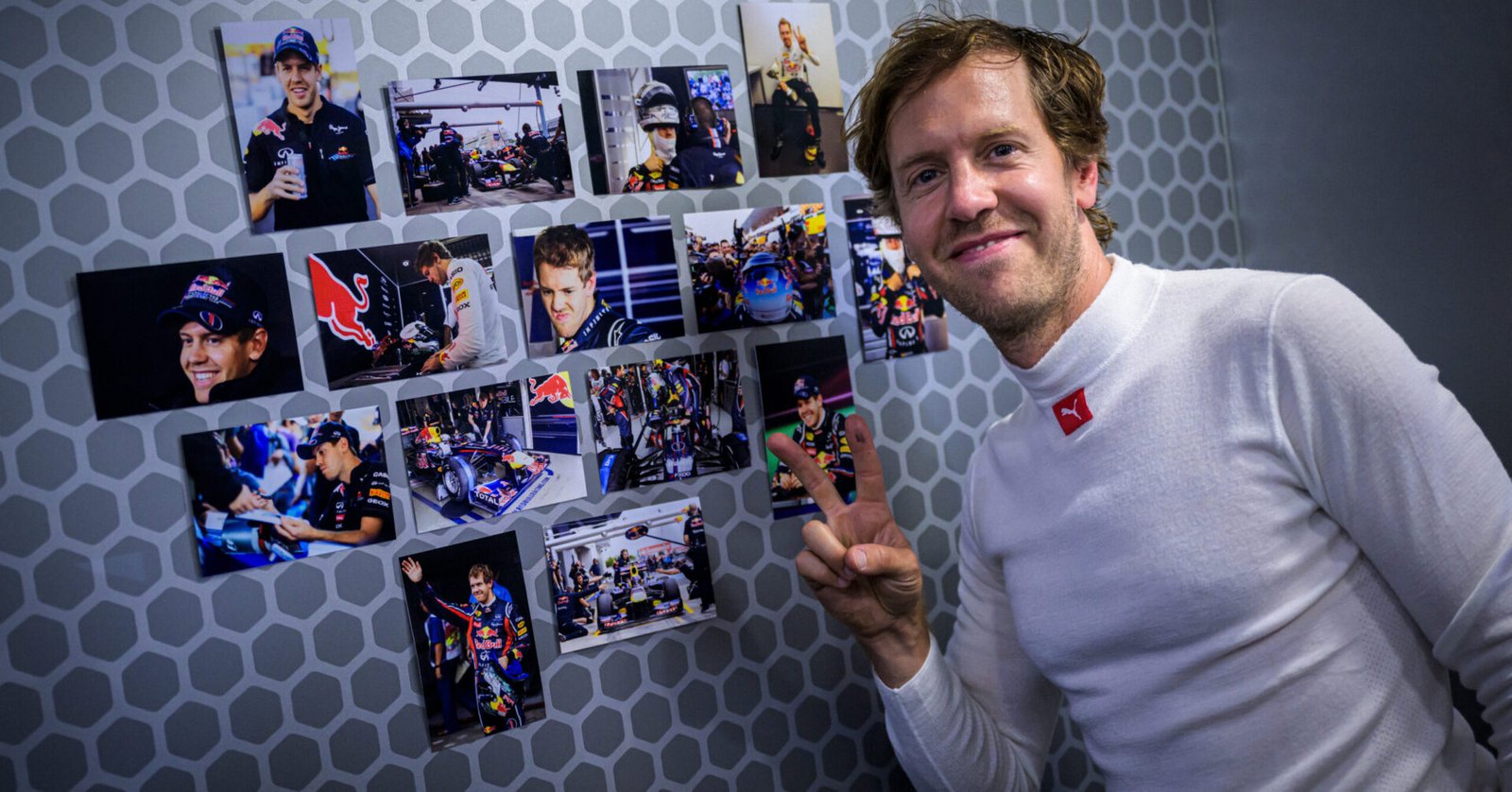Four-time Formula 1 world champion Sebastian Vettel has voiced significant concerns about the sport’s forthcoming 2026 technical regulations. In a recent interview, he warns that the pursuit of a greener future may come at the cost of the sport’s soul and practicality.
Vettel has become known for being a vocal advocate for the environment and fighting against climate change. Despite this, Vettel believes the new powertrain rules are heading in a problematic direction, echoing past mistakes.
Sebastian Vettel Warns Against Past Mistakes
On the surface, the 2026 regulations appear to be a sustainability champion. The new power units are set to feature nearly 50% electrification and run on fully synthetic, climate-neutral fuels. Yet, Sebastian Vettel identifies a critical flaw.
He believes this is a repeat of the complexity and cost explosion that followed the 2014 hybrid switch. This ultimately offered little relevance to road car technology. He went on to say:
“The 2014 technology were good in principle. The idea behind him was right. But the implementation wasn’t right.” He explained that “It cost far too much money and didn’t bring anything to the series”.
‘Drop in the Ocean’ – Why Sebastian Vettel Says F1’s 2026 Lighter Cars Still Miss the Point
Vettel fears the 2026 rules are a legacy of this error, where innovative but overly complex solutions are scrapped to cut costs and attract manufacturers. In a way, this still misses the mark.
The former racing driver pinpointed a specific technical shortcoming, stating “Energy recovery is great, but doing it only on the rear axle and ignoring the front axle doesn’t make sense to me”. He agues this is a half-measure that fails to harness the full potential of hybrid technology.
While he supports the development of synthetic fuels for their broader application in aviation and shipping, Vettel issues a stark warning about their use in Formula 1. He cautions that unleashing F1’s typical development ‘arms race’ on fuel creation could lead it down an unsustainable and irrelevant path, much like in 2014.
Vettel explains, “With fuels, we should close the door as much as possibly by limiting the origin of the molecules and establishing a certain relevance for series production”.
To solve this, he insists on imposing strict rules. He warns that in its well-intentioned push for sustainability, Formula 1 is in danger of prioritising complex optics over genuine progress and relevance.
A Plea for Relevance and Excitement
Beyond the engine, Sebastian Vettel highlights the ballooning weight of Formula 1 cars as a fundamental issue, both for entertainment and efficiency. He notes that moving less mass consumes less fuel, creating a more engaging spectacle.
“The cars are far too heavy. They should actually be 200 kilograms lighter,” he asserts.
For Vettel, the core of Formula 1 must remain its entertainment value and visceral appeal. He feels these elements are being lost. He reminisces about the awe-inspiring era of the V10 engines.
#OnThisDay in 2007, a young Sebastian Vettel made his debut in Formula 1 ✨
Four world titles, 53 wins and 122 podiums would later follow 🥹#F1 pic.twitter.com/BhXzIMheCy
— Formula 1 (@F1) June 17, 2023
“I was able to experience what a V10 feels and sounds like. And that’s part of the show and the Formula 1 experience,” he said. While acknowledging a new generation may not prioritise the roar of an engine, he believes they could still be captivated by it.
Crucially, he questions the need for the engine formula to be directly relevant to production cars. Vettel suggests F1 should instead focus on being a sustainable and thrilling entertainment product.
Vettel’s critique of the upcoming 2026 regulations could be considered a plea for balance. He welcomes F1’s environmental ambitions but urges the sport to avoid excessive complexity. Instead, he would like them to enforce clear fuel rules and prioritise lighter cars. Sebastian Vettel believes the spectacle of Formula 1 is just as important as technical relevance, but balance this with sustainability.












